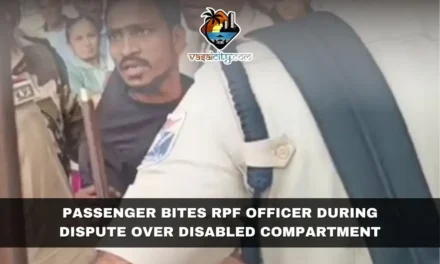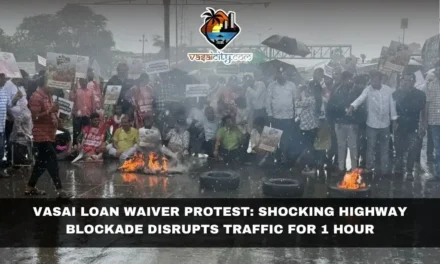Once upon a somewhat regular day in Mumbai, a story unfolded that seemed straight out of a dramatic movie plot, yet was all too real. This is the tale of Vikas Shukla, a 35-year-old laborer from Vasai, whose life took a turn toward the unbelievable. Shukla, in a bid filled with misplaced vengeance, made a decision that set off a series of events which not only rattled the authorities but also stirred the calm of two bustling railway stations in Mumbai: Dadar and Kalyan.
The incident began on a seemingly quiet Friday night when the Nagpur police control room received a call that would send waves of panic and urgency through the ranks of the Mumbai police and railway authorities. The caller, later identified as Vikas Shukla, made a startling claim – bombs were planted at Dadar and Kalyan railway stations, ready to detonate.
Understanding the gravity of the situation, the Mumbai police didn’t waste a moment. Alerts were sent out, and a comprehensive search operation was initiated. The bomb disposal squads, along with the police, were deployed to scrutinize every corner of Dadar and Kalyan stations. Amidst the chaos, the police managed to trace the call back to Vasai, leading them to the doorstep of the Pelhar police station’s jurisdiction.
Under the guidance of Senior Police Inspector Jitendra Vankoti, the investigation widened, covering areas like Bilalpada, Dhaniv Baug, and Vanothpada. The aim was clear – to ensure the safety of the thousands who commute daily and to nab the person responsible for the hoax.
As the story of the hoax bomb threat began to unravel, the motive behind such a drastic action came to light. Vikas Shukla, upon his arrest and subsequent interrogation, revealed a motive that seemed both personal and painful. Eighteen months prior, Shukla’s wife had left him, choosing to live in Kalyan. Every day, she would travel from Kalyan to Dadar for work. Overwhelmed by a mix of despair and anger, Shukla saw the bomb threat as a way to exact revenge on his estranged wife. The police disclosed that at the time of his arrest, Shukla was under the influence of alcohol, perhaps hinting at the depths of his turmoil.
This action, however, was not just a cry of a distressed husband but a serious crime. By spreading false information and rumors, Shukla had not only caused a widespread panic but also diverted the police and emergency services from their duties, potentially putting countless lives at risk. A case was promptly registered against him under the relevant sections of the Indian Penal Code, focusing on spreading false information and rumors.
The incident brings to the fore several underlying issues. The emotional and psychological state of Shukla, leading him to commit such an act, opens up conversations about the need for mental health support and the impact of personal turmoil on societal safety. It also highlights the swift and decisive action of the Mumbai police and railway authorities in ensuring public safety, showcasing their readiness to face potential threats.
As Shukla faces the consequences of his actions, one can’t help but reflect on the broader implications of such incidents. In a world that’s increasingly interconnected and interdependent, the ripples caused by an individual’s actions can spread far and wide, affecting the lives of many. This story, while centered around a hoax bomb threat, sheds light on the complexities of human emotion, the importance of public safety, and the relentless work of our emergency services to protect us.
In the end, this narrative serves as a reminder of the delicate balance between personal grievances and public safety, urging everyone to tread carefully in their actions and decisions. As the city of Mumbai moves past this incident, the hope is for a future where resolutions are sought through dialogue and understanding, rather than actions that lead to fear and panic. The tale of Vikas Shukla will be remembered not just for the chaos it caused but also for the lessons it imparts about the impact of our actions on the world around us.









